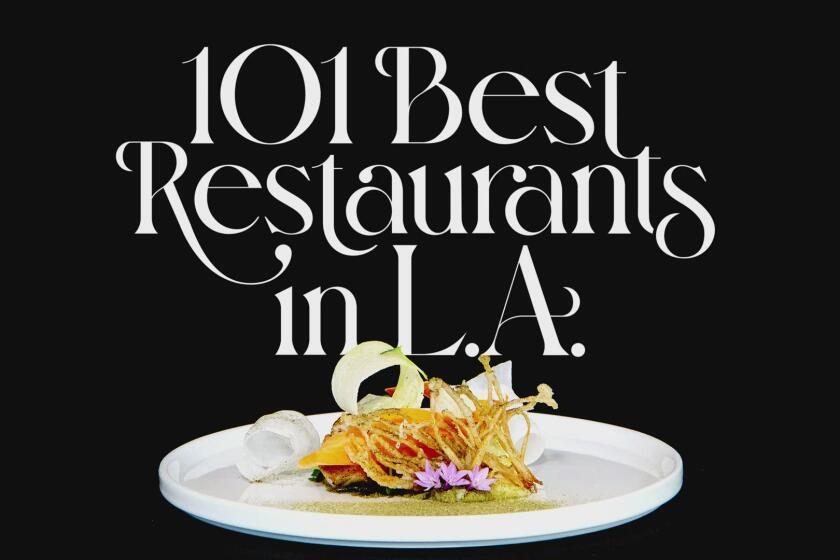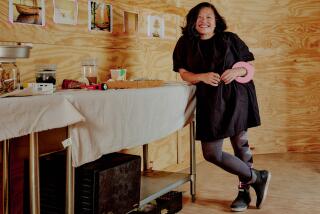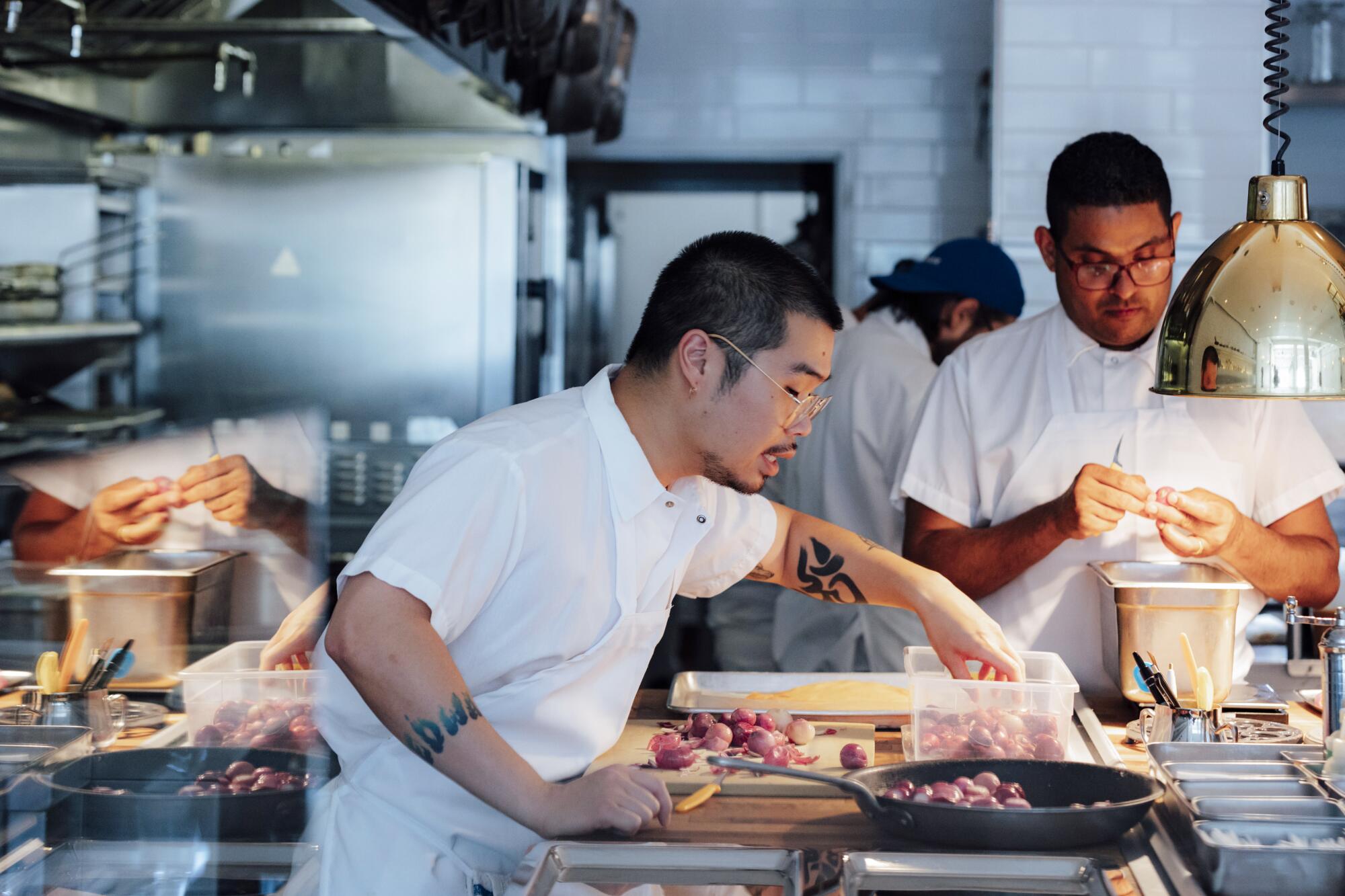
French cuisine is the baseline but not the boundary for chefs Max Boonthanakit and Lijo George.
- Share via
Early in the evening at Camphor, sunlight seeps through shaded windows and casts long shadows across its floors. Nearly every surface in the dining room has been painted white; walls and ceilings and tabletops take on an added pearly glow in the burst of brightness. Staffers move calmly through the space, past a gate-like gold sculpture near the entrance and banquettes the color of a tranquil sky at dusk.
At this hour, the restaurant takes on the dream-state feel of a waiting area to a cinematic afterlife.
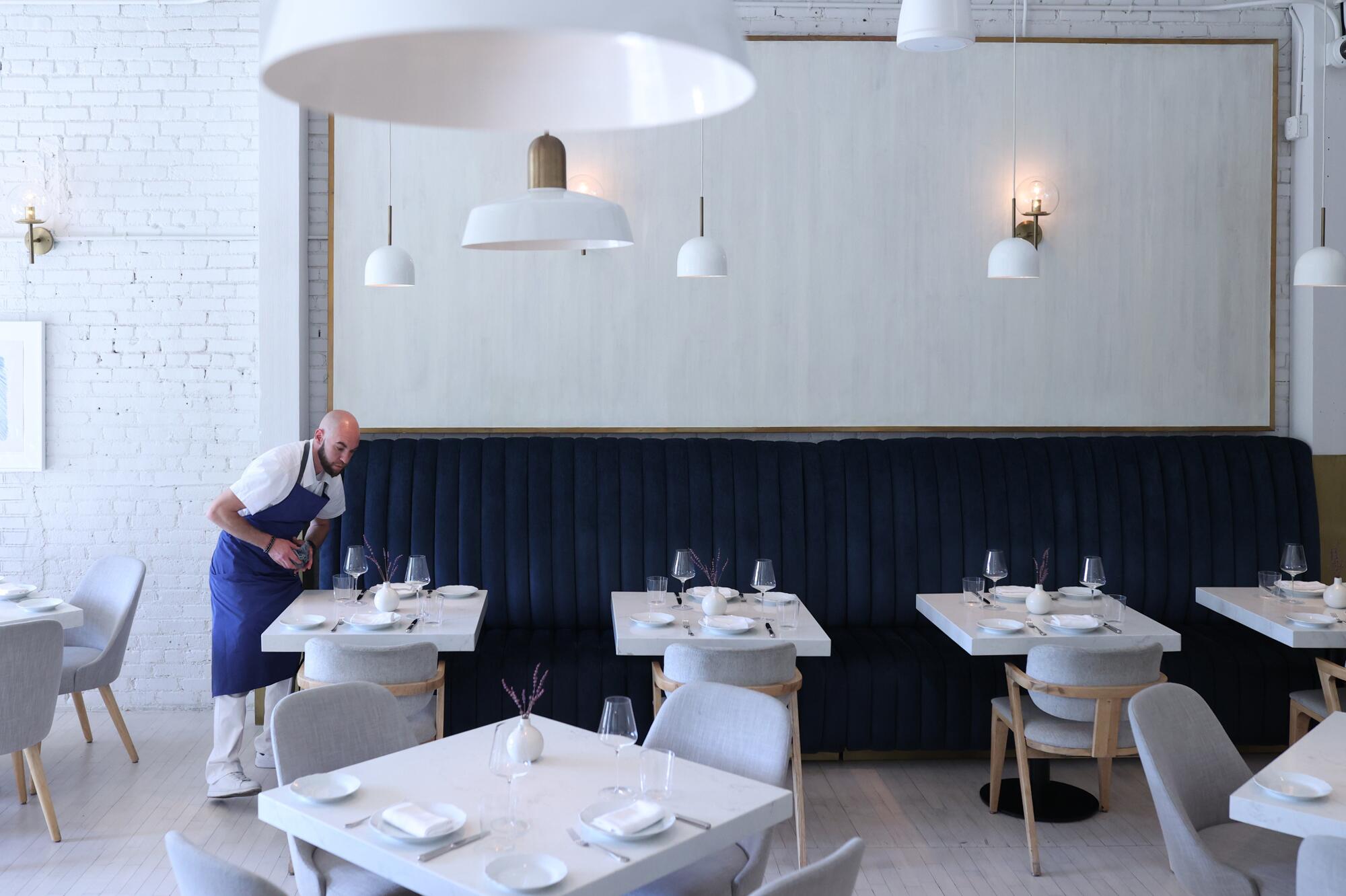
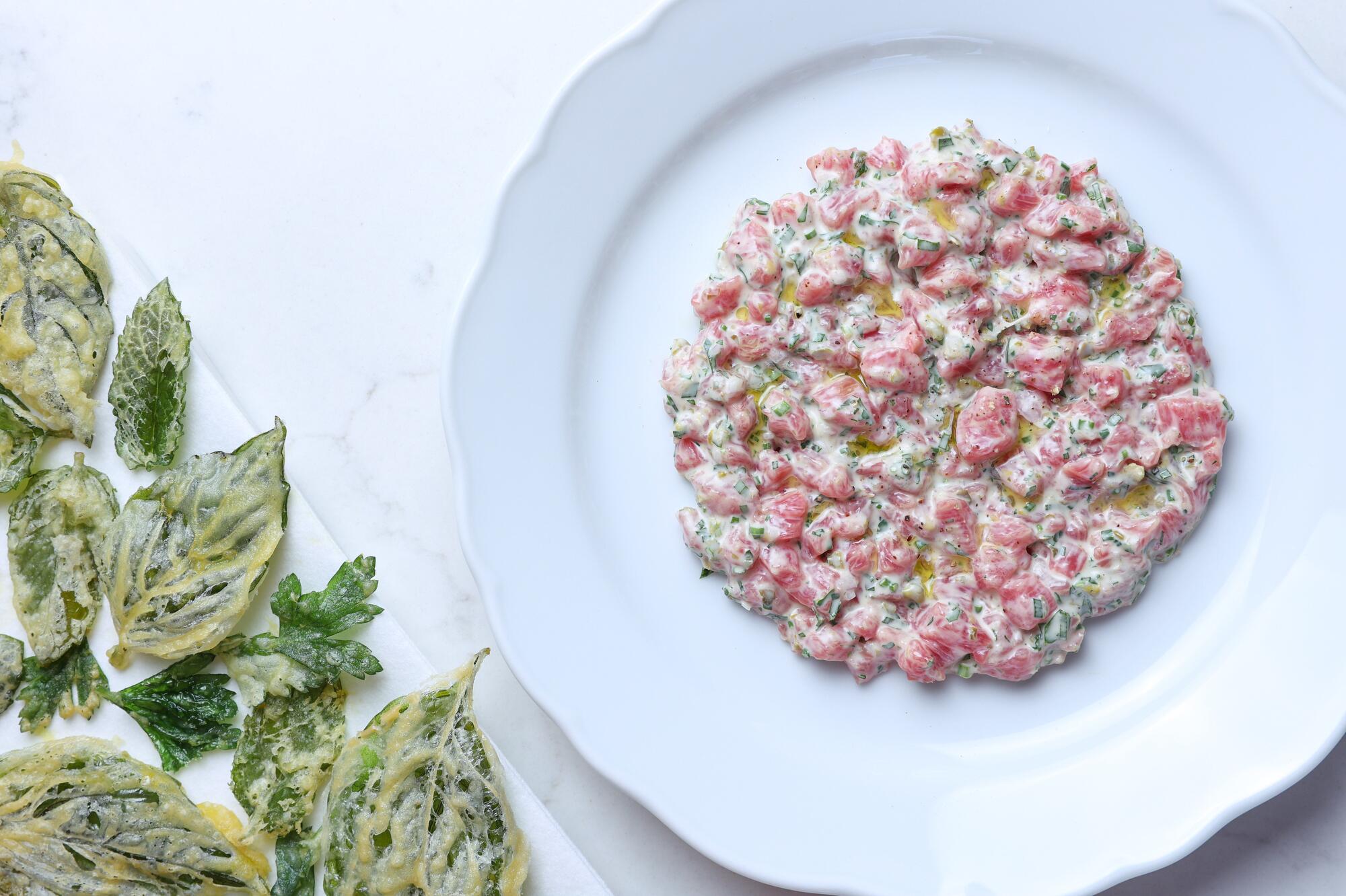
The effect sets an appropriate tone for the cooking. Though chefs Max Boonthanakit and Lijo George look to France for the menu’s baseline inspiration, their modernist retooling and canny use of spice pull dishes like beef tartare and roast chicken out of any usual sense of place or time. Down a narrow alley, behind the unassuming façade of a four-story red brick Arts District building, Boonthanakit and George create their own realm. This is bistro cooking of the mind.
The two met several years ago while cooking at Blue by Alain Ducasse in Bangkok, and the mention of Ducasse’s name alone can conjure some key words that also apply to Camphor: luxury, imagination, technique, global flavors. Before moving to Thailand, Boonthanakit worked as opening pastry chef in the same kitchen he now co-leads; the space previously housed Mei Lin’s too-short-lived Nightshade.
Cyrus Batchan, whose No.8 hospitality group is behind the swank cocktail bar Lock & Key in Koreatown, had partnered with Lin on Nightshade and last year reached out to Boonthanakit: Would he be interested in creating something new in the vacant location? The answer was yes, but with the addition of George, a native of Kerala, India, with years of fine-dining experience in Hong Kong and Doha, Qatar. George had never been to Los Angeles, but Boonthanakit knew their styles would click no matter where in the world they were cooking together.
Among a handful of snacks to kick off the meal, one makes an especially persuasive opening statement: tiny fried shrimp, shells and all, buried in a variation on South Indian milagai podi (also known as “gunpowder spice”) that burns with black pepper and beams with citrusy curry leaves. Its satisfying crunch sets off sparks across the taste buds. It also complements bar director Andrew Paniagua’s headier, herbal-leaning cocktails — particularly the complex gin-based Trocadéro with its dashes of absinthe, cucumber and celery bitters.
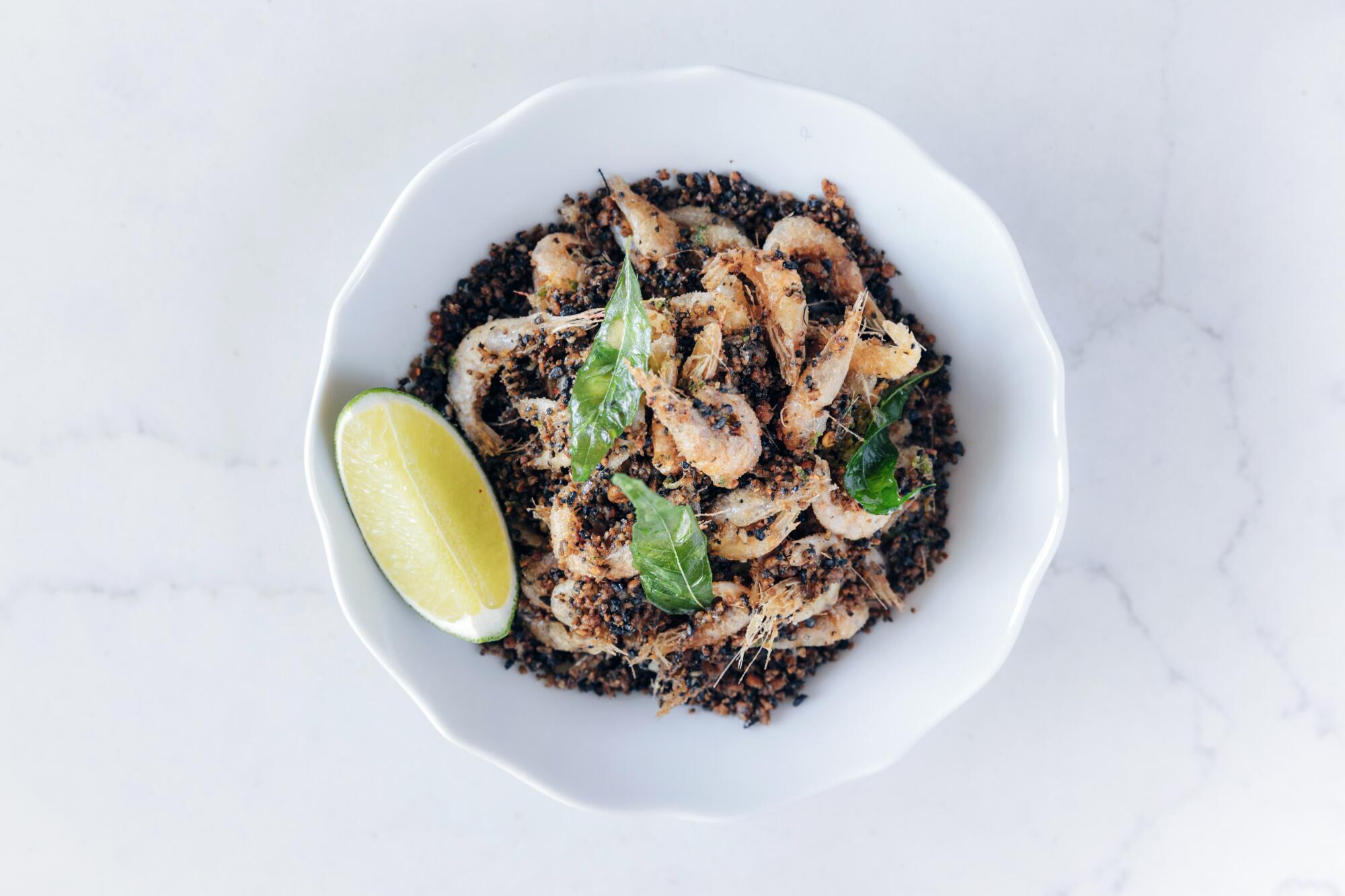
A warm hunk of bread comes with a smooth emulsion of Époisses and butter. Depending on the ripeness of the Époisses, the spread can recall a mild Brie or deliver the kind of funk that nearly singes your eyebrows. As you alternate between bites of spice-pummeled shrimp and crusty sourdough smeared with washed-rind cheese, the Camphor aesthetic starts to come into focus.
Boonthanakit and George can spin familiar Eurocentric restaurant dishes into fun new dimensions. While tinkering with fresh ideas for dressing up beef tartare, they landed on pairing it with herb tempura chips. Cradle a lightly battered basil or shiso leaf in your palm and spoon over some of the chopped round steak glossed in light mayo seasoned with dashi. You might catch the zap of a stray caper or the licorice nip of tarragon. I wind up using a fork more than my hands, but I appreciate the presentation’s inventive elegance.
If you’re searching for the essential food of L.A., let our critic’s 2021 restaurant list be your guide! Find the best vegetarian, Japanese, Mexican cuisine and more.
Barbajuan is a snack or hors d’oeuvre of fried ravioli, often stuffed with chard and ricotta, ubiquitous across the French Riviera. Here the kitchen team forms the fried bundles into ovals reminiscent of abalone and fills them with Dungeness crab; on the side is the gentlest aioli and, odd but rewarding, a handful of candy-red teardrop-shaped Peruvian sweet chiles. Comforting mussels cooked in white wine with wisps of bacon arrive after an act of pampering: The cooks have already removed the bivalves from their shells.
Boonthanakit semijokingly uses the word “tedious” to describe the effort he and George invest in their take on poulet farci. It begins by deboning chicken breasts while at the same time cutting twice the length of skin off the bird. They brine that portion and turn chicken thighs into truffled mousse; there is layering the elements into a cylindrical form and then poaching and finally searing the transformed bird and setting it in a thyme-scented sauce of jus and vin jaune before it reaches the table.
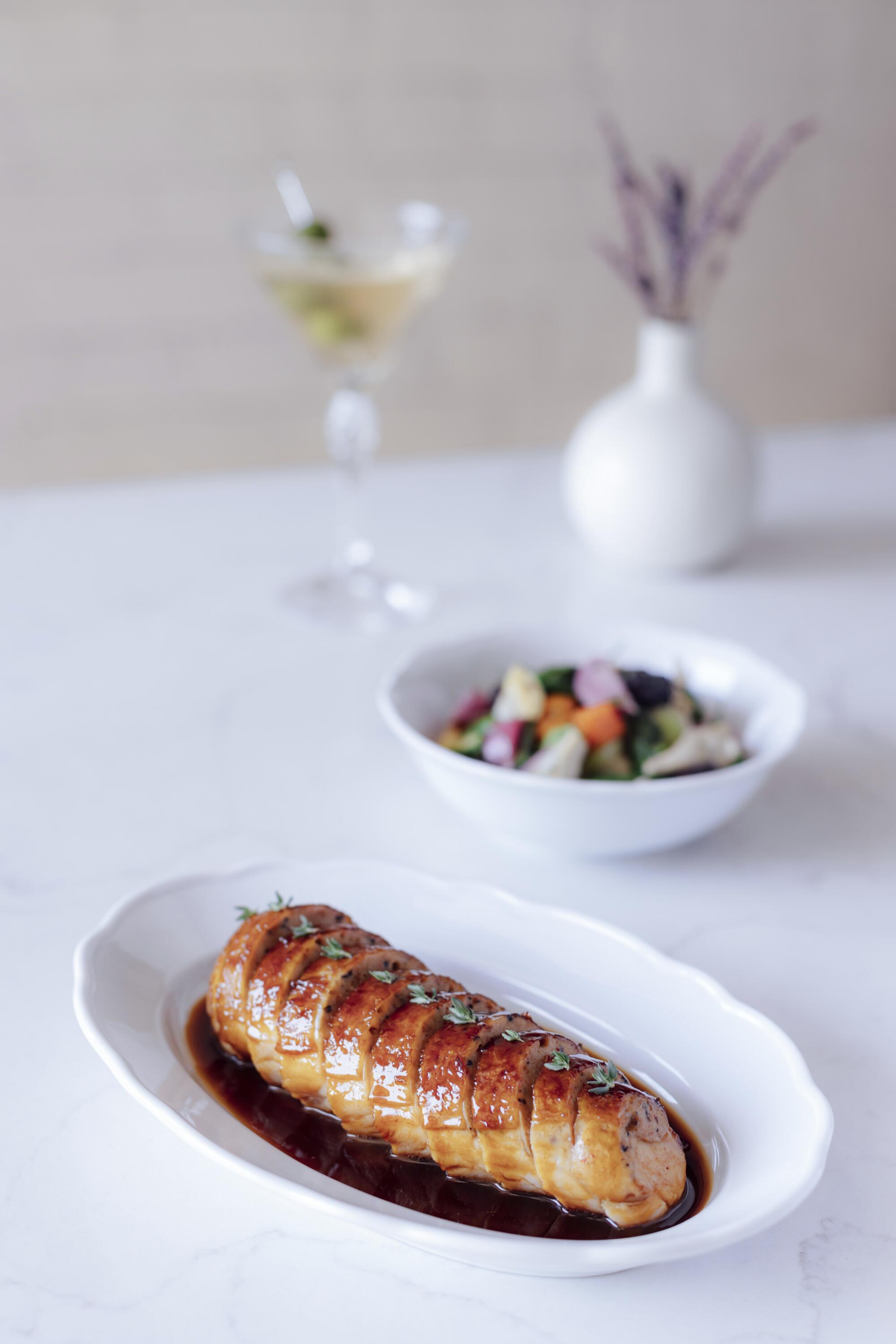
The involved technique reminds me of the luxe stuffed chicken that Lincoln Carson once served at Bon Temps — another Arts District restaurant that, like Nightshade, was an early, heartbreaking casualty of the pandemic. This version has an understated contrast in textures. When I concentrate, I can trace the soft, heady-sweet scent of garam masala that perfumes the dish like a pheromone. It stamps the intricate recipe with the chefs’ joint brand of individualism.
Originally Boonthanakit and George announced that the food at Camphor would be a merger of French and Indian cuisines; they backed off from that framework’s confines, but a side dish called “lentils & lamb” remains as a testament to the route they might have taken.
It’s basically high-tech dal: lentils simmered in a smoky broth made with lamb neck bones with ginger, garlic and spices that George brings back from Kerala, which is one of the world’s vital growing regions for black pepper, cardamom and other seasonings. A clear note of roasted cumin runs through the dish, which is crowned by an ornate green lentil foam lightened with cream. Rich and soothing and profound, the dal is my favorite thing the restaurant serves.
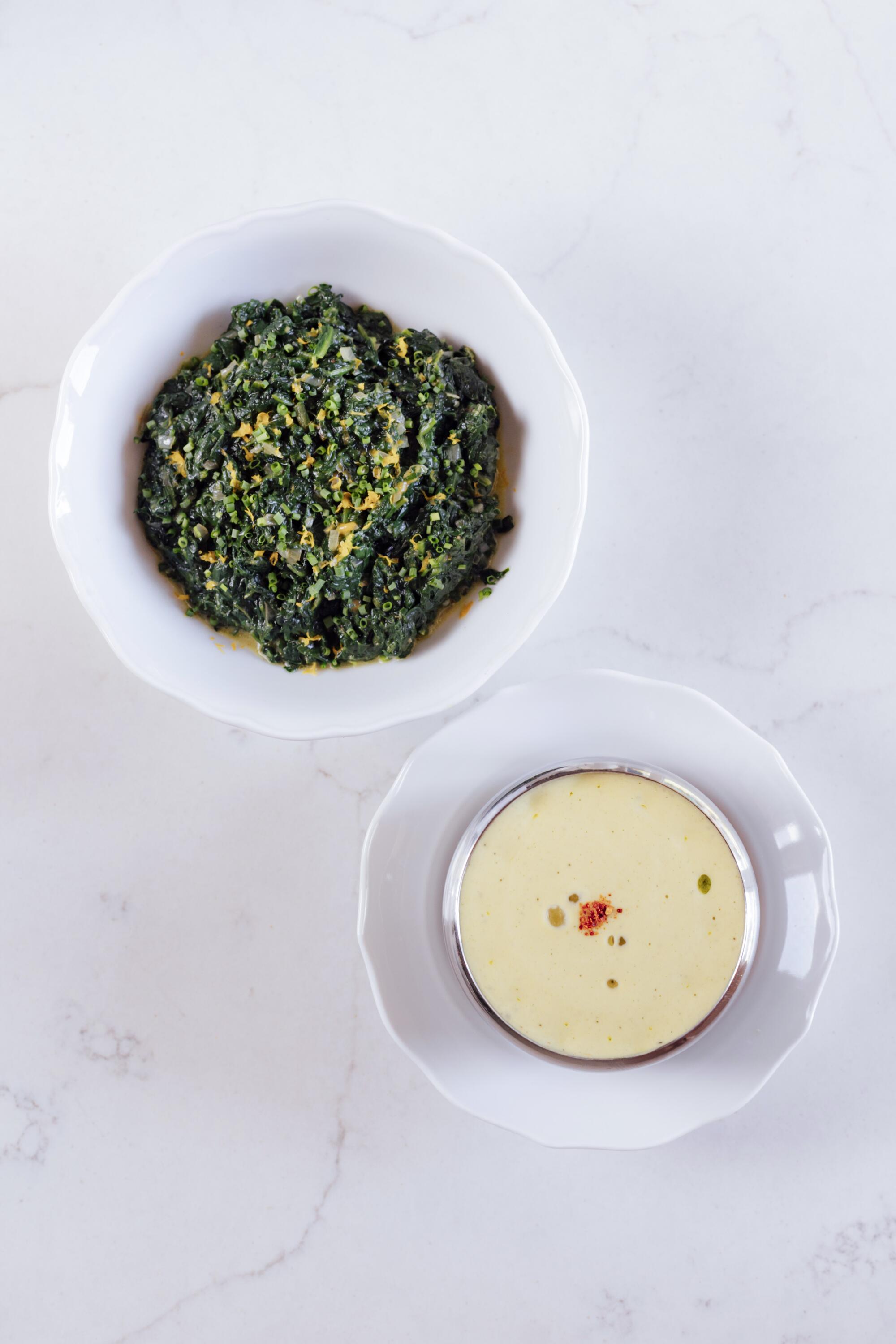
If the chefs liberate themselves from any set notion of geography in their cooking, neither are they beholden to any real sense of seasonality. Handsomely seared beef tenderloin in peppercorn sauce, a silken tangle of scallops and pasta, poached lobster tail splayed over Cognac-laced bisque: They all feed into a culinary sense of perpetuity, of Camphor as a cocoon of indulgence. As might be obvious by now, dining here requires something of an investment: The chicken costs $40 a la carte, for example; you’ll want to add a $16 side of the lentils & lamb and another $16 for asparagus, which appeared during spring and has lingered into the summer months. The bearnaise spooned over the top is textbook.
Before he left for Thailand, Boonthanakit created buzz with his icy, artful desserts at Nightshade. I see and taste the connection between then and now most in his creation centered around kiwi. He poaches the fruit in cardamom syrup until it takes on a candied suppleness. Over the top is a frozen disc made of green apple and lemon balm tea, with patterns made from charcoal powder and coconut that mimic a kiwi’s sliced-open center. It’s vegan, otherworldly and a wholly appropriate finale.
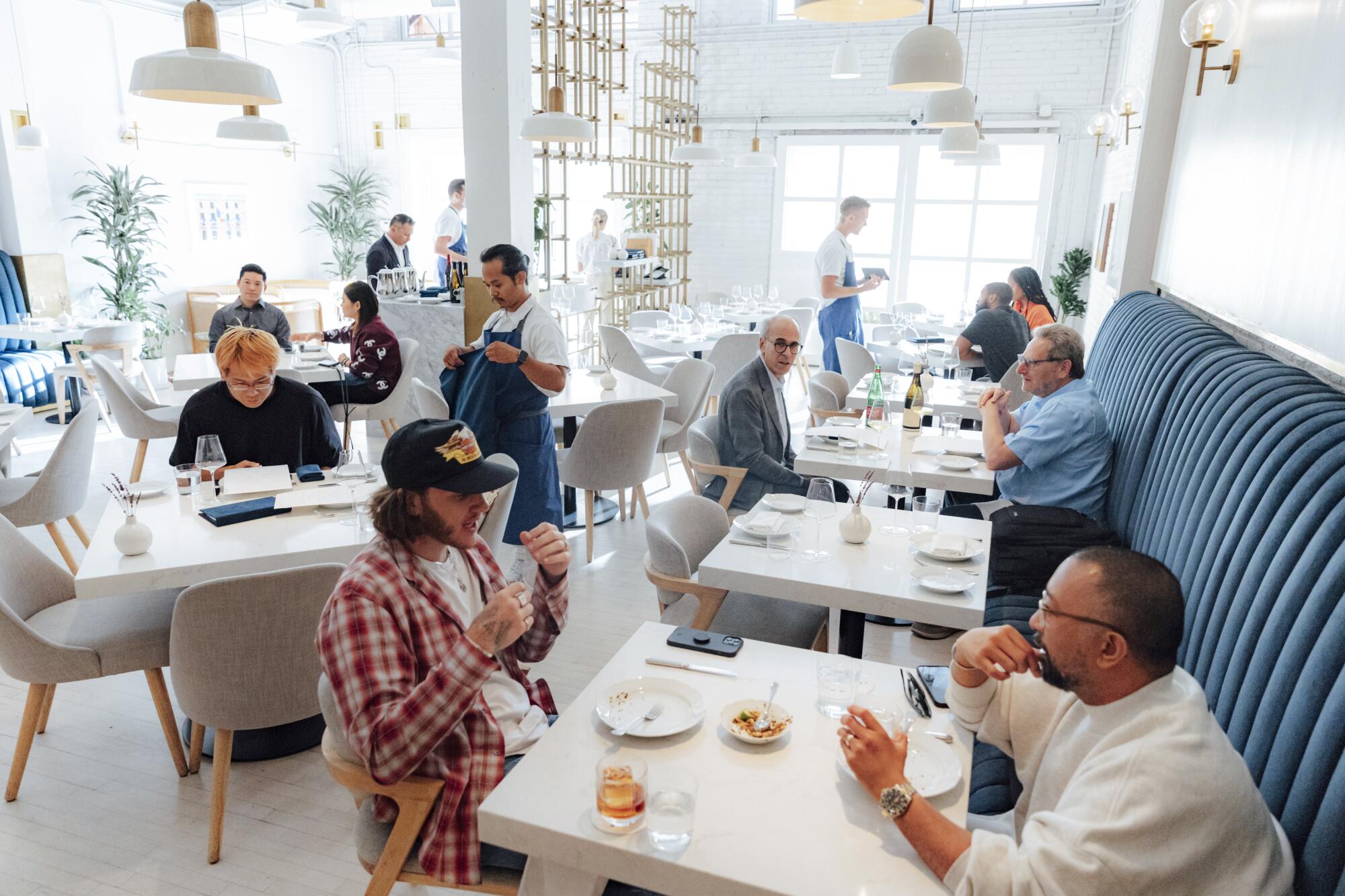
If you’ve settled into Camphor’s sweet-hereafter vibe, you’re likely also finishing the last sips of a premier cru Chablis or Pommard that dapper maître d’ Kalani Lau helped you select. He worked for years at Santa Monica’s Capo, which has a wine binder as thick as a Reuben sandwich, so he knows his stuff.
One last extravagance? A server will likely trundle over a gold cart stocked with liqueurs for post-dinner sipping. If Batchan is in the restaurant, he might come over and tell you about his personally amassed collection of chartreuse — the herbal spirit, whose recipes purportedly total more than 100 ingredients, made by Carthusian monks since the 16th century. The flavor of green chartreuse has no one landing point: It rockets from anise to summery herbs, from sweet to bitter, and back again. It’ll return you to the world outside at once calmed and intrigued. In that way, it’s as fitting an end to a meal at Camphor as Boonthanakit’s desserts.
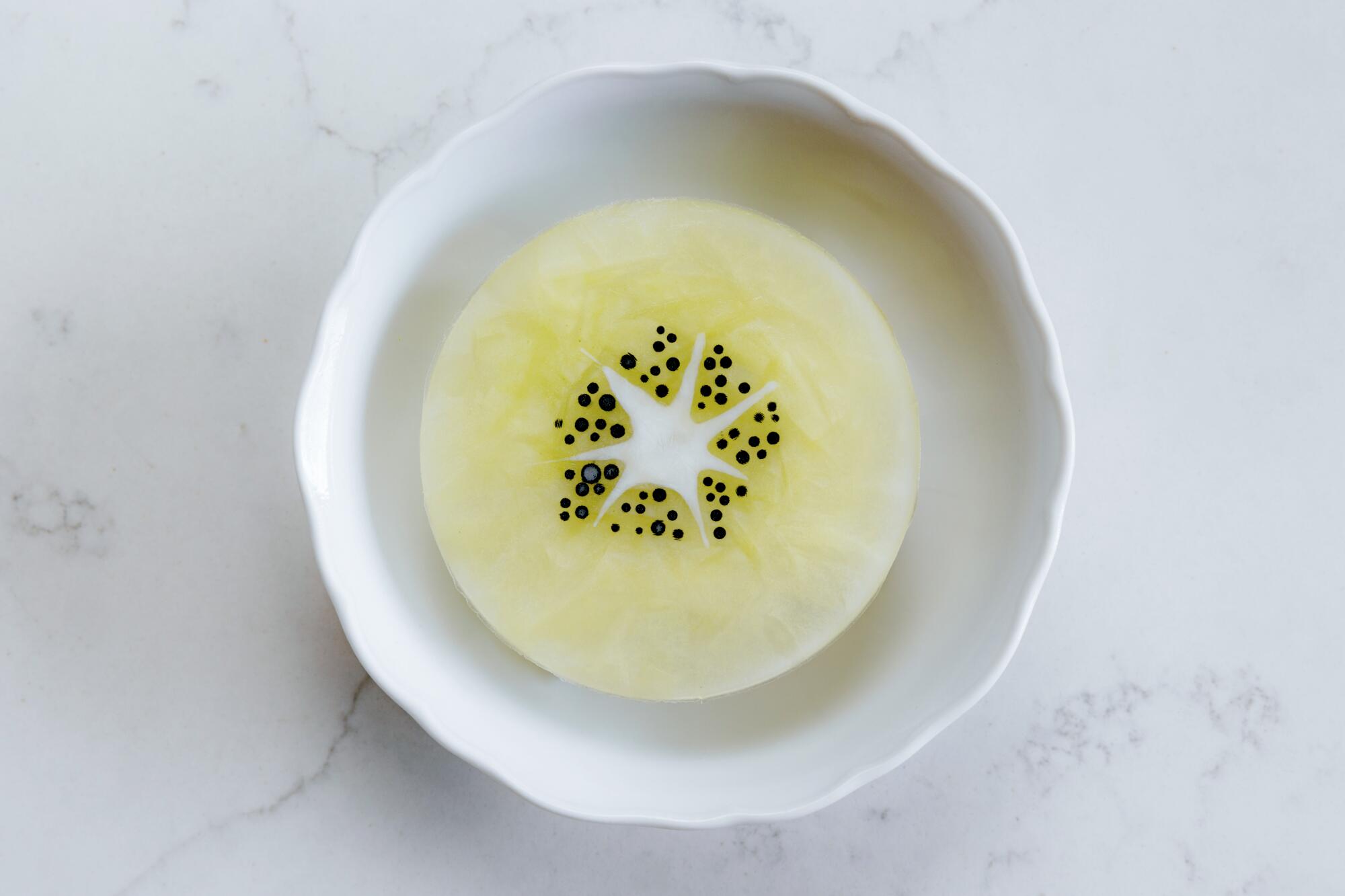
Camphor
923 E. 3rd St., #109, Los Angeles, (213) 626-8888, camphor.la
Prices: Snacks $10-$12, starters $19-$32, mains $30-$72, desserts $10-$20
Details: Open Sunday, Monday and Wednesday 5-10 p.m., Thursday through Saturday 5-11 p.m. Full bar. Valet parking.
Recommended dishes: Baby shrimp “gunpowder,” bread with Époisses butter, beef tartare, chicken, lentils & lamb, kiwi dessert, marzipan with Meyer lemon ice, bread pudding
More to Read
Eat your way across L.A.
Get our weekly Tasting Notes newsletter for reviews, news and more.
You may occasionally receive promotional content from the Los Angeles Times.
